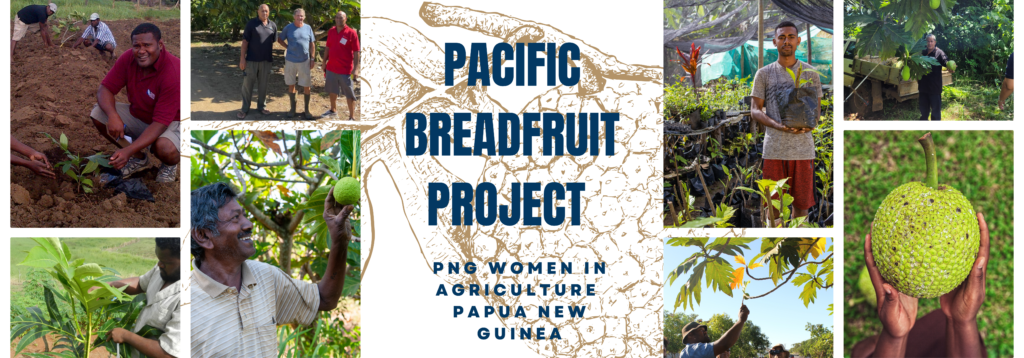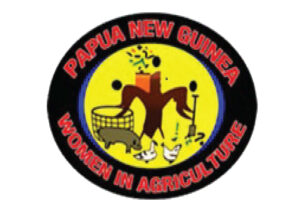FO-RI: FARMERS’ ORGANIZATIONS LEADING RESEARCH AND INNOVATION ON AGROECOLOGY
Pacific Breadfruit Project, Pacific Islands-part of the global FO-RI programme
The main expected aim for the Farmer Innovation for Sustainable Breadfruit Value Chains Project (Pacific Breadfruit Project) in the Pacific is to:
- reverse the traditional model of agricultural research and knowledge transfer by putting farmers/processors and farmer/processor innovation at the center of further development of sustainable breadfruit agroecology and market systems.
- Develop practical solutions to expanding agroecological (AE) production of breadfruit
- Develop practical solutions to product development / processing and market linkages driving new opportunities for small farmers who produce AE breadfruit
In the Pacific 5 farmer organizations lead action research initiatives in 5 countries – Te Tango Enua (Cook Islands), Nishi Trading Ltd (Tonga) Tutu Rural Training Centre (Fiji Islands) PNG Women in Agriculture (Papua New Guinea), Kastom Gaden Association (Solomon Islands).
Research Objective:
To promote sustainable agroforestry practices and enhance food security, income generation, and livelihoods in Papua New Guinea through the development and dissemination of effective breadfruit propagation techniques, application of breadfruit in agroforestry systems, preservation of traditional knowledge, and the establishment of value-added breadfruit products in the market.
Context:
Papua New Guinea (PNG) is a country rich in biodiversity and cultural heritage, heavily reliant on agriculture as a primary source of livelihood for its population. Among the staple crops cultivated in the region, breadfruit holds significant importance due to its nutritional value, versatility, and ability to thrive in various agro-ecological zones. Traditionally, breadfruit has been an essential part of the local diet, providing sustenance and contributing to food security.
Action Research Activities
- Developing mass propagation techniques through tissue culture and grafting, establishing nurseries, providing capacity building, and distributing quality seedlings to farmers.
- Engaging technical expertise, conducting research trials, evaluating agroforestry systems in diverse zones, and disseminating findings to enhance food security, income generation, and ecosystem services.
- Documenting indigenous knowledge through participatory videos, showcase them at cultural events and educational platforms to raise awareness and promote intergenerational learning.
- Collaborate with private sector partners for breadfruit processing, establish processing units, create value-added products, promote networking, and enhance market linkages.
Target:
- Farmers and Growers: the project will benefit farmers and growers by providing them with access to quality breadfruit seedlings, effective propagation techniques, and agroforestry knowledge. This will empower them to enhance their food security, increase income through diversified farming practices, and improve their resilience against environmental challenges.
- Local Communities: The project’s activities, including the preservation of traditional breadfruit knowledge and the dissemination of research findings, will engage local communities in intergenerational learning and cultural awareness. By showcasing indigenous practices and creating value-added products, the project strives to strengthen community cohesion and contribute to the preservation of local heritage.
- Private Sector Partners: Collaborations with the private sector, such as PNG BIOMASS are essential for establishing breadfruit processing units and value-added product markets. By involving private sector partners, the project seeks to create sustainable economic opportunities, generate employment, and establish strong market linkages that benefit both producers and consumers.
- Educational Institutions: Through the dissemination of participatory videos and research findings in educational institutions, the project targets the younger generation. By promoting awareness and understanding of breadfruit’s importance, the project aims to inspire future generations to engage in sustainable agroforestry practices and contribute to the preservation of cultural heritage.
- Stakeholder Groups: The engagement of stakeholder groups, including NGOs and community associations, will help ensure the effective implementation and long-term sustainability of the project. By involving these groups, the project aims to foster local ownership, collaboration, and knowledge sharing, resulting in a more holistic and impactful approach to sustainable agroforestry development.
- Government Agencies (NARI and DAL): The project’s collaboration with government agencies like NARI and DAL is crucial for scaling up successful techniques and practices. By integrating research outcomes into government policies and extension services, the project aims to drive broader adoption of sustainable agroforestry practices across the country and ensure lasting impacts beyond the project’s duration.
Implementing Farmer Organisations
PNGWiADF is a non-governmental organization that works to promote the economic empowerment of women in agriculture. The foundation provides women with training, access to credit, and support for marketing their products. The work of PNGWiADF is facilitating women empowerment in agriculture and improving food security in PNG. As a result of these initiatives, women are becoming more involved in decision-making processes, and they are gaining access to new markets for their products.


